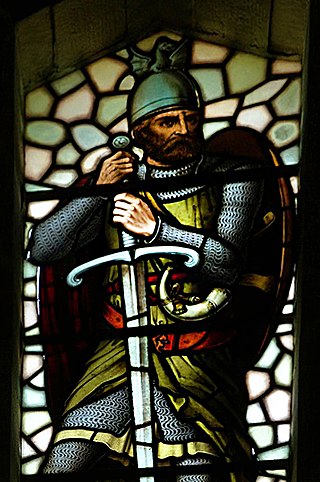
"the most significant event of the 19th century will be judged as Maxwell's discovery of the laws of electrodynamics"
| Part of a series on the |
| Culture of Scotland |
|---|
 |
| People |
| Mythology and folklore |
| Cuisine |
| Religion |
| Art |
| Literature |
Scottish inventions and discoveries are objects, processes or techniques either partially or entirely invented, innovated, or discovered by a person born in or descended from Scotland. In some cases, an invention's Scottishness is determined by the fact that it came into existence in Scotland (e.g., animal cloning), by non-Scots working in the country. Often, things that are discovered for the first time are also called "inventions" and in many cases there is no clear line between the two.
Contents
- Road transport innovations
- Civil engineering innovations
- Aviation innovations
- Power innovations
- Shipbuilding innovations
- Military innovations
- Heavy industry innovations
- Agricultural innovations
- Communication innovations
- Publishing firsts
- Culture and the arts
- Scientific innovations
- Sports innovations
- Medical innovations
- Household innovations
- Weapons innovations
- Miscellaneous innovations
- See also
- References
- Publications
- External links
Some Scottish contributions have indirectly and directly led to controversial political ideas and policies, such as the measures taken to enforce British hegemony in the time of the British Empire. [2] Scottish inventions have been noted as "revolutionising" the world numerous times, made possible by the "boundless imagination and inspired creativity" of the inventors who created them. [3]
Even before the Industrial Revolution, Scots have been at the forefront of innovation and discovery across a wide range of spheres. Some of the most significant products of Scottish ingenuity include James Watt's steam engine, improving on that of Thomas Newcomen, [4] the bicycle, [5] macadamisation (not to be confused with tarmac or tarmacadam [6] ), Alexander Graham Bell's invention of the first practical telephone, [7] John Logie Baird's invention of television, [8] [9] Alexander Fleming's discovery of penicillin [10] and insulin. [11]
The following is a list of inventions, innovations, or discoveries that are known or generally recognised as being Scottish.



